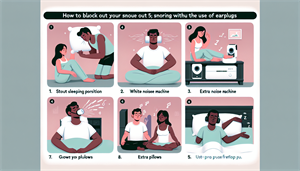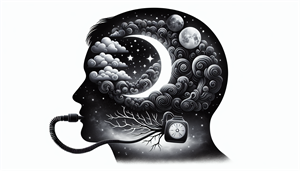
What Stage of Sleep Do You Snore In?
Do you ever wonder why some people snore louder during certain stages of sleep? Understanding the link between snoring and sleep stages can provide valuable insights into how to improve sleep quality and overall health.
In this article we will delve into the fascinating world of sleep cycles, snoring patterns, and practical solutions to help you or your loved ones enjoy a better night’s sleep. Specifically, we will address the question, “what stage of sleep do you snore?”
Key Takeaways
-
Sleep stages have an impact on snoring, with light sleep and deep sleep associated with different causes and remedies.
-
Snoring solutions such as mouthpieces, lifestyle changes, environmental improvements or recognizing signs of sleep apnea can help improve overall quality of sleep.
-
Taking proactive steps to reduce the risk factors for snoring is essential in order to achieve better health outcomes.
Understanding the Sleep Cycle
Sleep consists of a complex series of stages, including non-REM (NREM) and REM (rapid eye movement) sleep, which cycle in ninety-minute intervals. Each stage plays a crucial role in maintaining our overall health and well-being, with dreaming sleep being an essential part of the REM stage.
Understanding the specifically normal sleep structure is vital for maintaining a healthy lifestyle. Snoring patterns fluctuate with sleep stages.
This article will delve into these stages and how they relate to snoring.
NREM Sleep Stages
NREM sleep stages encompass:
Light sleep (Stage 1): The brain produces very small, rapid waves, and the body commences its relaxation.
Commencement of sleep (Stage 2): Brain waves become larger and slower, and the body remains relaxed.
Deep sleep (Stages 3 and 4): Brain waves continue to be large and slow, and the body remains in a state of deep relaxation.
Deep sleep (Stages 3 and 4), also known as slow wave sleep, is particularly important for growth, repair, and memory retention.
The brain produces very large and slow waves, and the body is in a state of profound relaxation. Tissue repair takes place, and growth hormones are secreted during this time. A lack of REM sleep can detrimentally impact memory and learning, especially for those who are specifically REM sleep deprived.
REM Sleep Characteristics
REM sleep mirrors wakefulness in terms of brain activity and plays a vital role in memory and learning. Our bodies become immobile during this stage to prevent sleep-walking or acting out dreams.
Maintaining a balanced sleep cycle is key to overall health, especially when it comes to falling asleep with ease and avoiding the need for REM sleep sleeping pills. Insufficient REM sleep can lead to impaired functioning and potential health issues, such as sleep apnea.
Obstructive sleep apnea, a condition that can disrupt REM sleep, can cause a range of health problems if left untreated. Therefore, it’s crucial to recognize the importance of REM sleep and its potential impact on snoring and overall health.
Snoring and Sleep Stages
Snoring predominantly occurs during deep NREM sleep stages, while sleep apnea is generally linked to REM sleep. Identifying the stage of sleep during which snoring occurs can help recognize potential sources and risk factors for snoring, as well as potential remedies and enhancements to sleep quality.
To comprehend the link between snoring and sleep stages, we will delve into snoring patterns during light sleep, deep sleep, and REM sleep, along with their possible causes and risk factors.
Light Sleep and Snoring
Snoring can occur during light sleep but is less common and intense than in deeper sleep stages. This can be attributed to the throat and airway muscles relaxing, partially obstructing the airway and causing vibrations.


